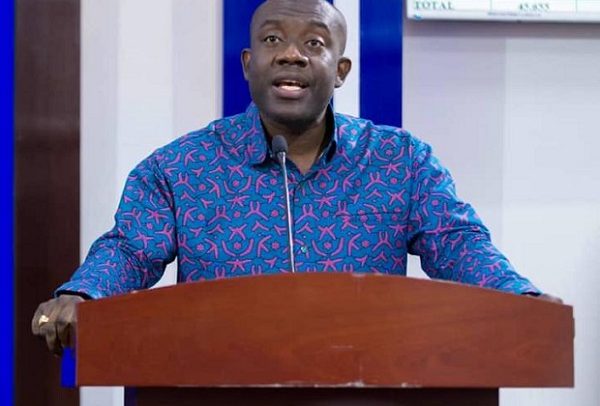Kojo Oppong Nkrumah
The Minister for Information, Kojo Oppong Nkrumah, has hinted that the government intends to enhance domestic revenue mobilisation as a major step towards capping government borrowing.
He said the government as part of consultations to come up with a budget for the post-Covid recovery efforts, has been looking at all options to ensure more revenues are generated for national development.
At a news conference in Accra yesterday, Mr. Oppong Nkrumah suggested that as demands for public services like the construction of roads and hospitals has seen an uptake, “one of the ways government can bring about development is to mobilise more domestic revenue to enable it satisfy the legitimate needs of its people.”
“Obviously, we would need to introduce some new broad-based taxes if we are to rake in the needed revenues to deliver what our people desire. New taxes may have to be imposed on items that exclude the poor and do not have high cascading effect so that it does not increase the difficulties that the Ghanaian is going through,” he said.
According to him about, 8 per cent to 12 per cent of the country’s GDP which ideally should come to government “is not coming in,” adding “yet, these economic activities are ongoing and are being recorded, forcing government to find ways to mobilise funds through taxes to fund the demands for roads, schools, and hospitals.”
He said government’s target through the 2022 budget is to consolidate the gains made so far in previous years and reboot the economy and set it back on track following the Covid-19 disturbance.
“As government gears up for the presentation of the 2022 Budget Statement and Economic Policy in Parliament on Wednesday, November 17, 2021, there is an ongoing national conversation on how government should go about its revenue mobilisation in order to close the gaping fiscal deficit.”
The minister said Ghanaian youth can expect a major injection of support in the upcoming budget and the injection will be focused on providing them with massive financing and technical support to create wealth.
“With dwindling revenue streams attributable to the slowdown in business activities occasioned by the coronavirus pandemic, Ghana is lagging behind most of its peers within the West African sub-region as far as the tax to Gross Domestic Product (GDP) ratio is concerned,” the minister said, adding “while Ghana is doing below 15 per cent, countries in the sub-region like Cote d’ivoire and Nigeria are hovering around an average of 18 per cent, raising questions on whether increasing taxes in the 2022 budget will help government shore up revenue inflows to fund developmental projects.”


